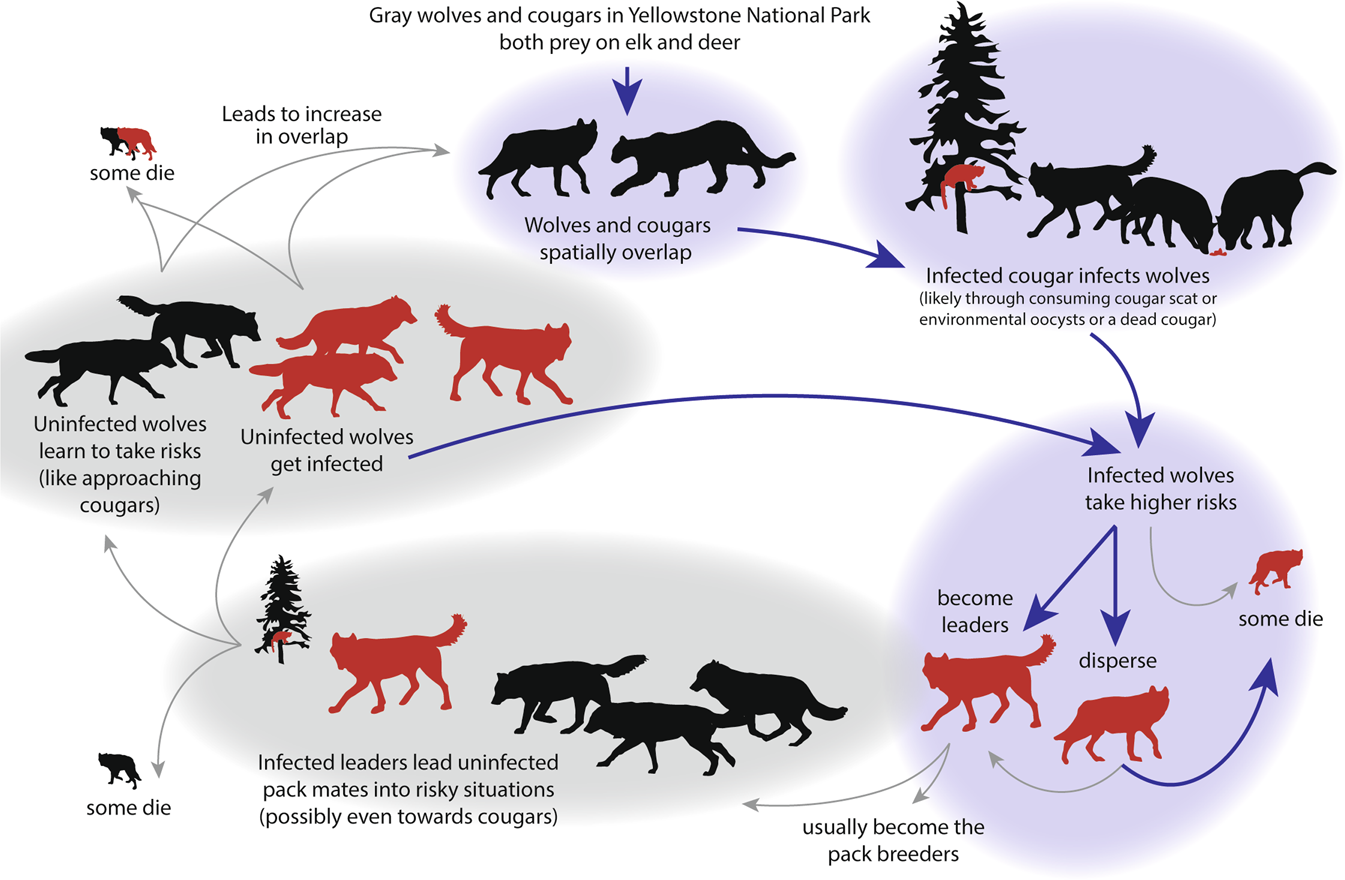The mind-altering effects of a well-known parasite may extend to more species than we thought. In new research this month, Yellowstone scientists are making the case that Toxoplasma gondii infection can influence the behaviour of grey wolves in the area. It appears to increase their odds of risk-taking behaviours, such as leaving their packs or becoming pack leaders.
Toxoplasma gondii is a single-celled protozoan parasite. To complete its complex life cycle and reproduce, it has to eventually infect members of the cat family. In order to accomplish this, T. gondii is thought to shift the behaviour of infected rodents — a common intermediate host. T. gondii-infected rodents become less wary of cat urine and less fearful of predators in general, which then makes them more susceptible to getting eaten by a cat.
Though T. gondii would probably prefer to end up inside rodents or birds that cats like to munch on, their hardy cysts regularly infect all sorts of warm-blooded species. These infections seem to only rarely cause acute illness, but the cysts themselves often survive in the body for a lifetime. And over the years, some studies have shown, this infection might have subtle behavioural or neurological effects in non-rodent animals. Most of this research has looked at humans, with studies finding that infected humans might have a higher risk of schizophrenia, for instance. But wildlife researchers at Yellowstone National Park wanted to know what factors could affect the prevalence of T. gondii infection in their wolves, and whether this infection can have far-reaching consequences for them as well.

The team analysed over 25 years of data on the park’s grey wolf populations, which included blood tests that could screen for antibodies to T. gondii. They also looked at data on the park’s cougars, since they suspected that wolves living closer to these cats would have a higher risk of infection.
As expected, cougars were regularly exposed to T. gondii (about 50% of the sample tested positive). And when wolves lived in areas that overlapped cougar populations, they more often had T. gondii antibodies — likely obtained through direct contact with cat droppings or cysts in the environment, the researchers say. These infected wolves were then more likely to display risky behaviours than non-infected wolves, such as dispersing (leaving their pack and travelling far elsewhere) or becoming the breeding leaders within their pack. Interestingly enough, this influence may then create a sort of feedback loop, the researchers speculate, since bolder infected wolves could be more likely to lead their packs into cougar territory, allowing the parasites to infect more wolves.
“This study is a rare demonstration of a parasite infection influencing behaviour in a wild mammal population,” the authors wrote in their paper, published this month in Communications Biology. “These two life history behaviours represent some of the most important decisions a wolf can make in its lifetime and may have dramatic impacts on grey wolf fitness, distribution, and vital rates.”
The findings, intriguing as they are, should ideally be confirmed by other studies before they’re assumed to be true (even in humans, there is an ongoing debate over how much T. gondii infection really affects us). And it’s not clear exactly how T. gondii could be affecting wolf behaviour, though the authors hypothesize that the infection might raise testosterone levels. But this is only the latest piece of research to suggest that T. gondii isn’t just capable of playing puppet master with rodents. A study last year, the authors note, found that infected hyenas were bolder and more likely to be eaten by lions than non-infected hyenas. So, if nothing else, more research is needed to understand and untangle the many ways that T. gondii and similar organisms may be influencing the world around them.
“Incorporating the implications of parasite infections into future wildlife research is vital to understanding the impacts of parasites on individuals, groups, populations, and ecosystem processes,” the authors wrote.
